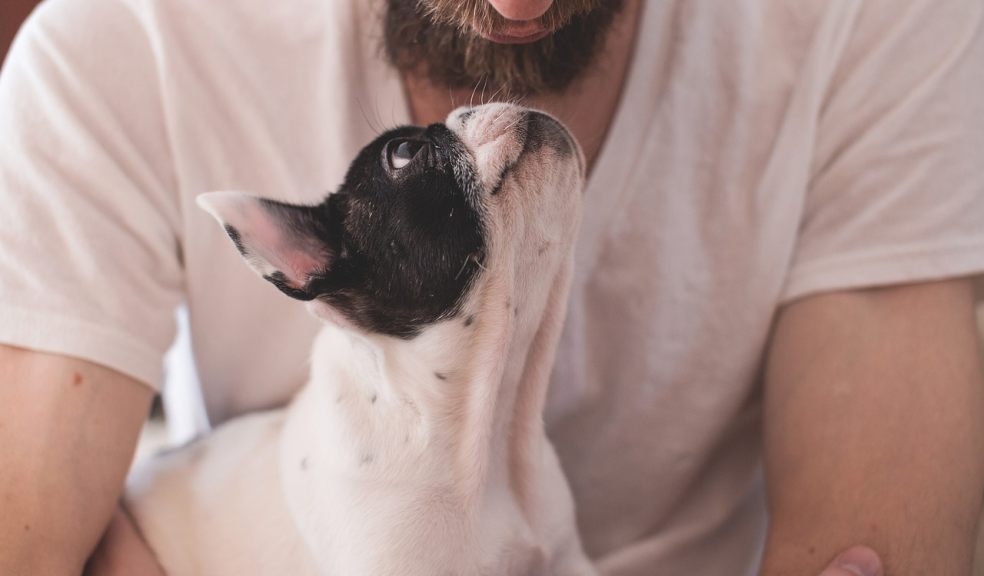
Warring couples urged to embrace mediation to help resolve conflict over pets
Call to action comes as nation celebrates Love Your Pet Day
A national charity has urged couples in conflict to embrace mediation to discuss what will happen to their pets following a divorce or separation in a bid to avoid costly court battles over matters relating to custody, contact and vets’ bills.
The call to action comes ahead of National Love Your Pet Day (20th of February), during which families across the country shower their furry or feathered friends or their beloved amphibians with love and devotion - whether they are cats, dogs, rabbits, birds, frogs, snakes or lizards.
While the law sees pets as little more than a ‘chattel’ - meaning an owned item such as a car or piece of jewellery - many owners see their pet as an extension of the family, meaning they are understandably reluctant to cut ties once a relationship breaks down.
According to National Family Mediation (NFM), a charity which helps families and couples amicably sort out a variety of disputes, including children, property, finance and other important matters, pets are already a common contention for couples in conflict.
However, with lockdown creating a boom in pet ownership in the UK, with a recorded 3.2 million pets being bought in the first year of the pandemic, and 30,154 divorces filed in the first 3 months of 2022 alone, NFM says it expects the number of couples locking horns over what will happen once they go their separate ways to increase.
Jane Robey, CEO of National Family Mediation, comments: “Pets are very much considered a part of the family, and so it’s understandable that they are also a real bone of contention for couples in conflict.
“Sadly though, the courts do not recognise the huge emotional connection between owners and their pets. Instead, they are dealt with in same way as any other asset, meaning that one or other person will be allocated ‘ownership’. Typically, the person named on a microchip, on the pet insurance or who bought the pet in the first place gets to take possession.
“That means there is an inevitable winner and a loser, and of course it also means that the person who ends up with custody is fully responsible for the costs and caring responsibilities which can also be difficult.
“Through mediation couples are far more likely to reach an agreement that works for all, and we are increasingly seeing people choosing to work together by sharing costs, pet sitting for one another, and sharing other responsibilities such as taking them for walks.”
According to NFM, an increasing number of cases that they deal with each year involve matters relating to a pet, and with the recent spike in divorces and separations fuelled in part by the pressures of lockdown and the cost of living crisis, and the increase in pet ownership across the country, the charity is expecting that number to continue to rise.
Jane adds that once both parties are agreed on the best way forward for them, and their pet, it’s important that an agreement is written up to avoid misunderstandings in the future.
“A written agreement can be put together as part of the mediation process,” Jane explains. “It can cover important matters such as finances – including how expensive vet bills, dog food, toys or even kennels will be managed.
“We are seeing an increase in the number of cases that relate to pets already. More people are choosing to separate, and many are worried about how they will manage financially when they are no longer living in a two income household.
“Our professional mediators focus primarily on the needs of everyone involved – including the animals – and can help to make the experience much more cost-effective, far quicker and far less emotionally draining than dragging the matter through the courts.”
According to Statista, 62% of the UK have a pet, and over half of these households (34%) own a dog, which is currently the UK’s most beloved pet. With 13 million dogs that are currently household pets followed closely behind by 12 million cats.
A 2020 survey delving into why the British love dogs so much highlighted that 51% of people found their dog brought them happiness, 47% said their dogs provided love and affection, whilst another 35% stated their dogs provide companionship.
And the pet population thrives in the UK, it’s also evident how much owners are prepared to spend on their pampered pooches and other animal friends, with families spending £8bn in 2020 on pet food/related products, a notable increase from £2.9bn in 2005.

















